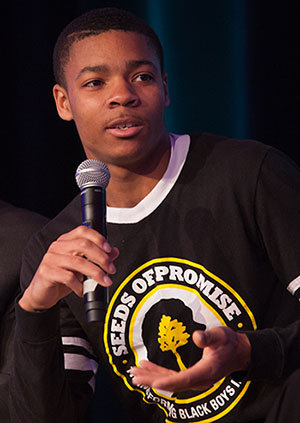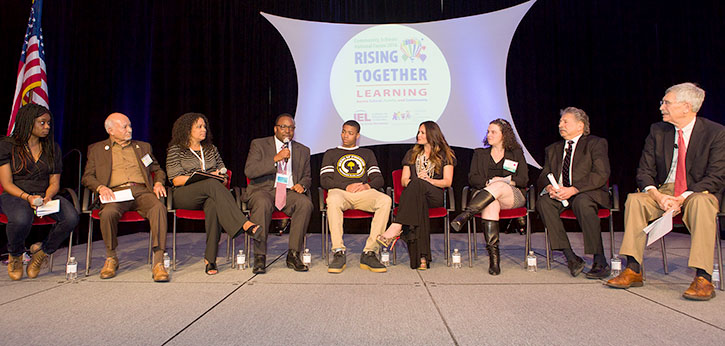The Washington Post published “Coming of age in a city coming apart,” a piece following the daily life, challenges, and dreams of Khalil Bridges, a student at a Baltimore community school.
 This week, the Washington Post published a story entitled “Coming of age in a city coming apart.” The piece follows the daily life, challenges, and dreams of Khalil Bridges, a senior at Baltimore’s Renaissance Academy, one of the city’s community schools. The central question of the story is, in the midst of poverty, struggle, and violence, “Can he make it when others are dying?” The piece details the many and varied obstacles Bridges meets on his path and his journey in overcoming them.
This week, the Washington Post published a story entitled “Coming of age in a city coming apart.” The piece follows the daily life, challenges, and dreams of Khalil Bridges, a senior at Baltimore’s Renaissance Academy, one of the city’s community schools. The central question of the story is, in the midst of poverty, struggle, and violence, “Can he make it when others are dying?” The piece details the many and varied obstacles Bridges meets on his path and his journey in overcoming them.
Bridges spoke at the Community Schools National Forum in Albuquerque, N.M. in April, a conference convened every two years by IEL’s Coalition for Community Schools. A community schools strives to be a center of their community. Community schools have an integrated focus on academics, health and social services, youth and community development and community engagement.
Speaking on a panel at the Forum’s closing plenary, Bridges noted some of the ways the school helps students and families, saying, “Ms. Atwater [the principal] has a room full of everything students need, like stuff for kids and food, if they’re hungry. We have a food pantry. They give us opportunities to work with different people like Family League. I also went to the University of Baltimore… and I went to the University of Maryland.”
Mentoring is a large component of Renaissance Academy’s strategy to address the whole student. Said Bridges, “When I came to Renaissance, I was like, I don’t think nobody is really going to care about my opinion at all. After a while, I got close to Mr. Cooper [Bridges’ school mentor]. And when they get close to you, they show you that you can really vent; you can tell them what’s wrong. They help us inside the school and outside the school.”
Bridges concluded his thoughts with advice for educators: “If students really get the chance to see that they can actually get opportunities, I believe they will get more involved, because they don’t really get to have a childhood because they have to grow up at home. So if you show them they can have a childhood and grow up and have some parental guidance in school, I believe it will really change their lives.”
